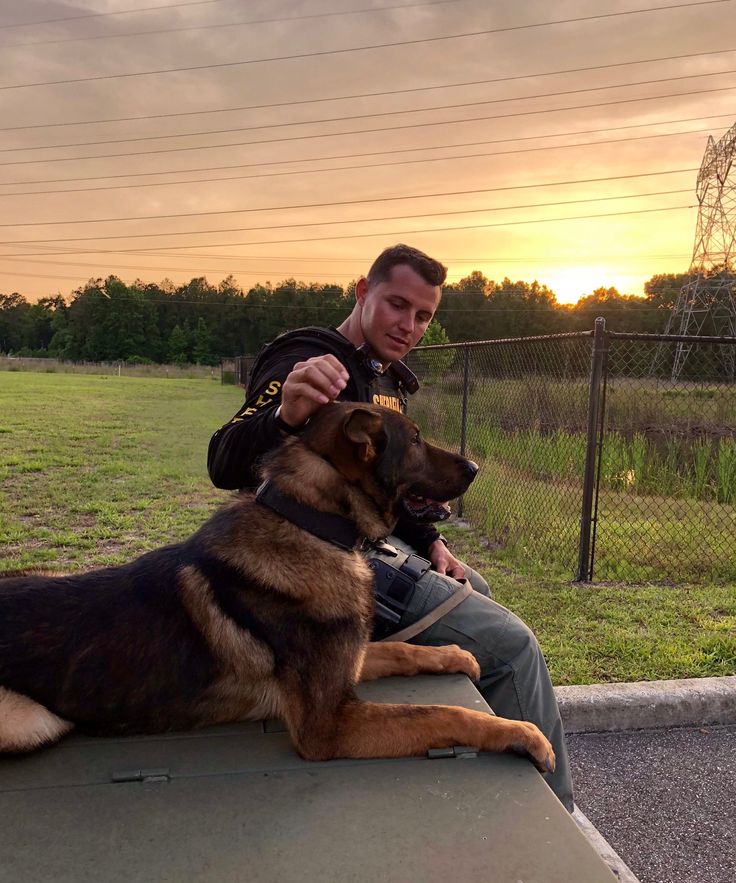Owning a German Shepherd goes beyond having a family pet; it’s about embracing a companion renowned for its unwavering loyalty. These remarkable dogs forge deep bonds that transcend the conventional understanding of a pet-owner relationship. But what sets German Shepherds apart in terms of loyalty? It’s a blend of their innate protective instincts, unparalleled intelligence, and an often underestimated trait – their unique aesthetic appearance.
German Shepherds seamlessly integrate into families, demonstrating not only their guarding instincts but also their remarkable social intelligence. They adapt effortlessly to various family dynamics, forming lifelong bonds with each member. This social acumen extends to their interactions with children, effortlessly becoming a child’s playmate, guardian, and confidant. As a German Shepherd owner, witnessing your dog connect with each family member is a testament to their unmatched affection and adaptability.
One aspect that truly sets German Shepherds apart is their loyalty during times of adversity or the absence of their owners. Whether faced with challenging situations or separated for a brief moment, these dogs remain faithfully devoted. Rescued dogs and those adopted as young pups exhibit a loyalty that surpasses expectations. It’s not just about a pet waiting for its owner; it’s about a faithful companion who understands and values the bond forged.
In this article, we’ve briefly touched upon the differences in loyalty between German Shepherds and other breeds. We’ve discussed the unique characteristics that optimize their loyalty and explored the role of their background, be it a working dog or a cherished family pet. As a German Shepherd owner, you’ll come to know that the loyalty they offer is not just a trait; it’s a commitment to being an integral part of your family. Let’s find out everything about German Shepherd loyalty – a journey that only a true owner can thoroughly understand.

The Root of the Behavior
When delving into the temperament and personality traits of German Shepherds, it’s evident that their loyalty is unparalleled. These intelligent dogs possess a unique combination of genes and background that make them more than just pets; they are working dogs with a distinct mission. Raised, socialized, and trained with a purpose, these four-legged companions are not merely obedient; they obey and serve a purpose.
German Shepherds, with their natural instincts and innate behavior, are inherently loyal. Their instinctual willingness to learn and their remarkable intelligence make them perfect candidates for training and assigning a mission. The loyalty of German Shepherds goes beyond a mere connection; it’s a commitment to work hard and please their owners. This loyalty is deeply ingrained in their genes and bred background.
These loyal German Shepherds are not just loyal for the sake of it. They are bred with a specific purpose – whether it’s to herd sheep, protect a flock, or identify and neutralize potential threats. Commonly seen in public services like the police or military task forces, they play a crucial role in helping people with disabilities, acting as guide dogs for the visually impaired. Their loyalty extends beyond the emotional bond; it’s a dedication to a mission.
To experience the full extent of a German Shepherd’s loyalty, attention and training from an early age are vital. Being a working breed, their loyalty is closely tied to a sense of purpose. As an owner, building a strong bond involves clear intentions, consistent commands, and recognizing the importance of being the pack leader. This way, the loyalty of your four-legged buddy is not just a trait but a testament to the incredible connection forged between two-legged and four-legged pack members.
Encouraging the Behaviour
German Shepherds, known for their exceptional loyalty and innate protective instincts, often exhibit a remarkable behavior that sets them apart. As pet owners, it becomes imperative to understand and appropriately encourage this unique behavior to foster a harmonious relationship. Being a proud owner of a German Shepherd, I have learned the importance of being cautious in navigating their loyalty and protective tendencies.
Identifying signs of their protective nature is crucial for maintaining a healthy level of protection without accidentally encouraging over-protectiveness. During a calm stroll in the park, if your German Shepherd quietly steps in front of you, appearing curious as an unfamiliar dog or person approaches, it’s a moment to be cautious. Understanding the distinction between a real threat and a harmless encounter is pivotal. Pulling on the leash and growling may indicate an overly aggressive response, but it’s essential to discern the loyalty behind it and address the behavior appropriately.
In such instances, seeking the assistance of a professional dog trainer becomes a necessity. An appointment with a skilled trainer can provide the necessary guidance to actively work on and curb any unwanted behavior. This proactive approach not only ensures the safety of people and other dogs, preventing them from being physically harmed but also safeguards pet owners from potential lawsuits that could be filed due to an overly aggressive pooch. Understanding and nurturing the unique loyalty and protective traits of German Shepherds is the key to a fulfilling and balanced companionship.
Are German Shepherds Loyal Dogs?
German Shepherds, with their distinctive traits of loyalty and high intelligence, have earned a well-deserved reputation as one of the most loyal dogs. Originating from Germany, their original breeding was focused on herding sheep, making them excellent at understanding and following commands. The breed’s introduction to the world under the name “Deutsche Schaferhunde” in Germany marked the beginning of their journey to becoming the loyal guardians they are known as today.
Over time, German Shepherds have become synonymous with loyalty to their owners, cementing their place as beloved members of the family. The American Kennel Club even mentions their remarkable traits such as courage, confidence, and intelligence, ranking them 3rd in terms of IQ among all dog breeds. This ranking reflects their exceptional understanding, even comparable to that of a 2.5-year-old child. However, it’s not just blind loyalty; these dogs are versatile, brave, and exhibit a strong guarding instinct, making them not only good guard dogs but also suitable for various roles.
For German Shepherd owners, the process of nurturing their pet’s loyalty involves spending quality time together. Loyalty grows as owners train their dogs, channeling the breed’s active mind in a positive direction. Whether it’s guarding the bathroom door or displaying immense loyalty during walks, these dogs become deeply devoted companions. This loyalty extends beyond the family setting to professional domains, as German Shepherds play crucial roles in police, military, and various working roles.
In their policing days, German Shepherds have been known to lay down their life in the face of danger to protect their handlers and civilians. This remarkable commitment to loyalty transcends mere companionship; it becomes a pledge to safeguard others, even in the midst of conflict. Whether serving in law enforcement, as service dogs, or in roles like therapy dogs and search and rescue, their unwavering loyalty remains a testament to the bond between these intelligent canines and their handlers.
What Makes a Dog Loyal?

From ancient sacrifice rituals to modern tech innovation, human progress has seen a remarkable evolution in our relationship with dogs. The journey began when humans, in the pursuit of optimizing their works, experimented with domesticating wolves. Inventing agriculture and producing social networks, humans decided to raise these once dangerous animals as family members. The faithful bond between dogs and humans goes beyond mere exposure; it’s a universal trait deeply embedded in our shared history.
The domestication of wolves into dogs marked a crucial step in our progress as a society. German Shepherds, known for their loyalty and intelligence, play a significant role in this process. As working-line dogs, they were bred through artificial selection, removing them from the wild breeding pool. This deliberate breeding aimed to develop not only their working relationship with humans but also a strong emotional bond.
In the framework of human progress, dogs like German Shepherds have become dedicated providers of comfort, protection, and companionship. Owners cultivate a deep sense of gratitude for their spontaneous loyalty and intelligent nature. These faithful, intelligent animals have adapted to our needs, providing emotional support and a sense of security. As providers and parents, dog owners witness the unconditional loyalty that these animals offer, creating a bond that transcends the binary spectrum of faithfulness.
German Shepherds, through their working roles and emotional attachment, represent a vital cause in our progress. They allow us to figure out the abundance of loyalty and trust that dogs can provide. In this process, the dog becomes more than just a pet; it becomes a family member and a primary owner’s most dedicated companion. The evidence of their loyalty is not only seen in their working roles but also in the spontaneous loyalty they exhibit in everyday interactions, making them an integral part of the human story of progress and companionship.
Are German Shepherds Only Loyal To One Person?
German Shepherds are known for their remarkable loyalty, fostering a deep family bonding. Through proper socialisation, these dogs become an integral part of the family, contributing to a harmonious and loving environment. In essence, their unique qualities make them stand out in a whole different league, bringing a large amount of joy to every household they join.
How To Find If Your German Shepherd Is Loyal
The loyalty of a German Shepherd is deeply ingrained in its genetics, but the key lies in the owner’s influence through proper training and socialization opportunities. Understanding the breed line and the individual personality of your dog is crucial in raising a loyal companion; consistent and positive treatment will confirm signs of unwavering loyalty.
Responses With Strangers
The German Shepherd, known for its loyalty, rushes to protect its master, discerning strangers with an alert response. Understanding the signs of uneasiness, this breed can calmly calm down and growl when necessary, fostering a unique and strong relationship through feasible communication.
Body Language
German Shepherds, known for their highly expressive nature, display unwavering loyalty by staying next to you during walks. In a relaxed position, they wag their tails, exchange affectionate looks, and confirm that their loyalty is not only steadfast but also reflected in their playful interactions, making them a truly devoted and loving bree
Obedience Test
Upon command, the German Shepherd confirmed its loyalty through an instant and obedient response, flawlessly executing the sit, stand, come, fetch, and stay commands during the conducted obedience test. Every prompt met with a swift and precise sign of the dog’s unwavering devotion.
Will A German Shepherd Be A Good Family Dog?
German Shepherds are excellent family dogs, suited for a person seeking loyalty and protection. Their affectionate and loving nature makes them not just pets but loyal companions.
What Could Cause Disloyalty In A German Shepherd?
The German Shepherd stands out from other breeds, adhering to a distinct breed standard that highlights its unique combination of intelligence, loyalty, and versatility. Understanding the factors that contribute to this breed’s exceptional personality is crucial for anyone seeking valuable information on canine companionship.
Abuse And Neglect
Recently adopted, the German Shepherd showed signs of abuse and neglect, requiring cautious handling. With good training and time, the loyal nature of the breed began to emerge, and the once damaged dog started to recover, proving that history doesn’t define their future. Now, there’s nothing to fear as the adopted German Shepherd exemplifies resilience and unwavering loyalty.
Fear
In the animal kingdom, loyalty within a family is a powerful defense mechanism, diminishing fear in the face of external threats. Even when frightened, animals find comfort and safety in hiding together, developing a collective sense of security and love, ultimately making them less susceptible to aggressive forces.
Doesn’t Feel Like Part Of The Family
German Shepherds are known for being loyal family members, as these social animals thrive when they have a designated place within the family. Treating your GSD pup with lots of love ensures they become an integral and cherished part of your household.
Lack Of Training
Through proper training, German Shepherds exhibit unwavering loyalty, making them ideal family companions. Their intelligence and obedience, when guided with care, create a harmonious and fulfilling bond within the family. Reverse disloyalty by investing in expert dog training, emphasizing socialization and enriching experiences to foster a well-balanced and loyal canine companion.
How To Encourage Loyalty In Your German Shepherd
Despite the hard life, German Shepherds are known for their loyal nature, understanding demeanor, and love for training, encouraging a bond like no other—more than pets, they’re companions who come to understand and aren’t just animals.
Showing Love & Affection
Encourage your German Shepherd to show their loyal nature by showering them with love and affection, and you’ll witness a dog who truly knows the joy of life when you ask for their companionship.
Socialization & Bonding
A German Shepherd, known for its loyalty, forms a bond with its owner through simple yet important practices like socialization, unraveling the loyalty puzzle that connects them in a unique and harmonious way, while overcoming possessive and territorial instincts towards both animals and people.
Never Use Negative Reinforcement
Cultivating loyalty in German Shepherds is best achieved through positive discipline methods, as reliance on negative reinforcement, such as smacking or physical punishment, can instill fear and breed disloyalty.
Give Them A Job To Do
German Shepherds, known for their intelligence and strength, may be difficult to deal with as pups, but their working combination of a wicked-smart mind and super-strong physique makes them thrive when given tasks to release energy, resulting in a productive and loyal companion that knows the best thing to do even when there’s nothing to do.
Conclusion
In conclusion, the unwavering loyalty of German Shepherds transcends the conventional pet-owner relationship, making them exceptional companions deeply ingrained in family dynamics. Rooted in their genetics and purposeful breeding, these intelligent and versatile dogs exhibit loyalty not only through emotional bonds but also through a commitment to a mission, whether it be herding, protecting, or serving in various roles like police and military tasks. Despite potential challenges, German Shepherds prove to be loyal family members, responding positively to love, affection, proper training, and meaningful tasks.
FAQs
Why do people like German Shepherds so much?
German Shepherd Dogs consistently top the AKC’s annual list of popular breeds, renowned for their unmatched loyalty, courage, confidence, and exceptional ability to learn, coupled with a willingness to protect like no other breed, making them stand out with unique qualities among canine breeds.
Do German Shepherds love their owners?
German Shepherds exhibit strong loyalty and attachment to their owners, making them extremely devoted and protective, forming close bonds and becoming deeply attached to their families.
Why are German Shepherds so protective of their owners?
German Shepherds, known for their strong instinct to protect, make exceptional working dogs, diligently guarding and watching over their owners, ensuring a loyal and close bond as they fulfill their duty as a devoted canine companion.
What are German Shepherds’ weaknesses?
German Shepherds, known for their loyalty, are prone to an increased risk of severe arthritis, causing changes in their gait as they walk lower to the ground, making their hind legs appear more bent.

